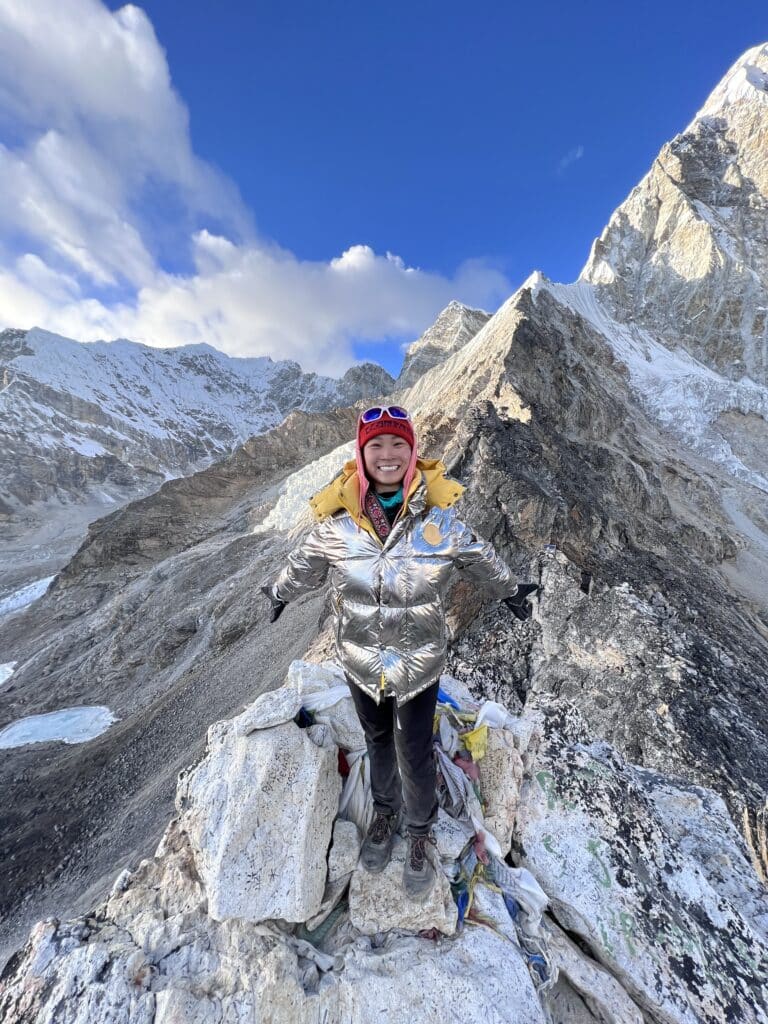
Meet Sophia Shi
Nepal 2023
Shine On Scholarship Recipient
University of Texas at Austin
PhD Chemical Engineering
Graduation Year: 2027
“With a growing passion for contributing to the energy crisis and sustainability effort, as well as my zeal for traveling, I found TGP to be where I belong. TGP offers opportunities for me to take my knowledge from the classrooms and labs into the real world and take even more back with me to my graduate studies.”
I am a Ph.D. candidate in chemical engineering at UT Austin. My research focuses on renewable energy solutions, specifically the implications of hydrogen as an energy carrier. I love seeing other parts of the world and making new friends. I love spending time outdoors and absorbing the vibrant energy offered by Mother Nature. With a growing passion for contributing to the energy crisis and sustainability effort, as well as my zeal for traveling, I found TGP to be where I belong. TGP offers opportunities for me to take my knowledge from the classrooms and labs into the real world and take even more back with me to my graduate studies.
I participated in the Iceland program in March 2022 and will always remember the hotdogs we grilled next to a volcano and riding the Super Jeep across a river. It was such a reward after learning about hydroelectric power and carbon capture, as well as a windy hike. With the best memories from that trip, I wanted to participate in another TGP program.
Unlike the learning-based program in Iceland, the Nepal program stood out to me to be more hands-on. As a computational researcher, where my simulations can be done in front of a desk, I was craving to make a difference that will immediately impact people’s lives. So I decided to find a way to enable this trip for myself financially.
The trip was way out of my budget and I would have given up the opportunity to go to Nepal if I didn’t receive the Shine On Scholarship. I remember pouring my heart out in my scholarship application writing about my passion for renewable energy to benefit the community, and that my upbringing in a developing environment inspired me to bring energy to people in need.
The moment when I got the email informing me that I had been selected for the Shine On Scholarship, I felt like my passion and hard work were shared and cherished. I knew then I was going on another memorable trip, just like the one in Iceland if not more meaningful. I was so appreciative and curious about the readers behind these applications, their stories, and their reasons for being part of the sustainability effort.
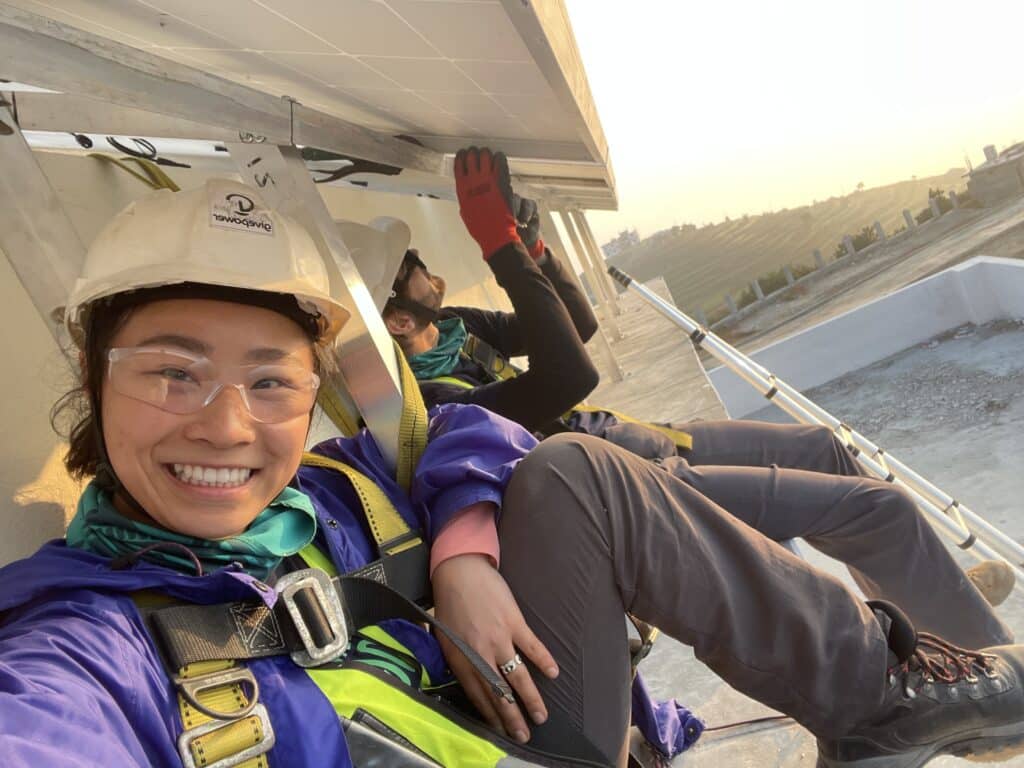
The enrollment process was very smooth for me as a TGP alumni, as I just signed up for the program without having to submit another application. My biggest challenge was figuring out the financials but it all worked out at the end. The second biggest challenge was to fit the trip into my schedule. As a Ph.D. student, I have limited vacation days or holidays. Even spring break and fall break are only for undergraduates and not us. Since the school pays us graduate students for the research work, we are expected to have work hours as if it were a real job.
I leveraged the fact that I am a Shine On scholar and provided detailed information about the trip to my department. As a result, I received approval and support from my research advisor and the department graduate office that I could take two weeks off for the Nepal program. For the months leading up to the trip, I worked extra hard and finished my expected tasks with high productivity. The TGP adventures have always been my motivation in many ways.
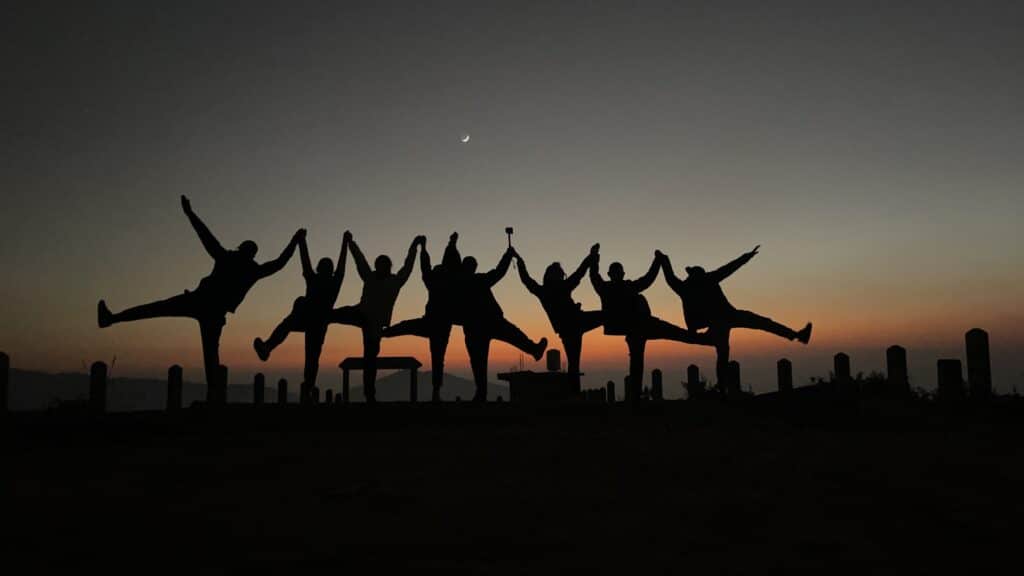
The Importance of Global Experiences
Underrepresented students might be hindered not only by finances but also by their cultural and social limitations. Although I was the lucky first person in my family to go to college, my mother grew up in a traditional Chinese community and was told that no man would want to marry a girl who was too smart. So, she purposely did poorly in school to meet her societal expectations. I was also advised to dim my light.
As a woman pursuing a career in STEM, I am often questioned by my relatives back home as to why I chose “a men’s field.” By stepping out of my comfort zone and leaving my home country to come to the United States for education, I realized that there is so much more knowledge and opportunities out there and the potential for each one of us is endless.
Throughout the years, I graduated from college with a degree in chemical engineering as a valedictorian and now pursuing a graduate degree at a prestigious university. My family has been slowly seeing my capabilities to be a woman in engineering and many of my childhood girlfriends are also inspired to explore opportunities in STEM.
I have traveled to 18 countries so far, two with The GREEN Program. With every country I visited, my heart grew bigger. I saw the beautiful ways of living in these countries but some struggle with problems like discrimination. In Nepal for example, the country still holds on to a caste system that categorizes the citizens. While I aim to contribute to the effort for accessible energy and water, these goals cannot be achieved if social inequalities remain unsolved.
I wish I had been there for women like my mom when they were my age, to tell them that there’s no need to dumb themselves down or sacrifice their opportunities to be accepted by society. I want to bring unique values such as courage and inspiration to other students all over the world who may be surrounded by cultural stigmas or socioeconomic constraints that hold them back from reaching their dreams. I am empowered to inspire every student to see the world and fight for their rights. We cannot choose where we are born, but we can choose where and how we belong in this big wide world.
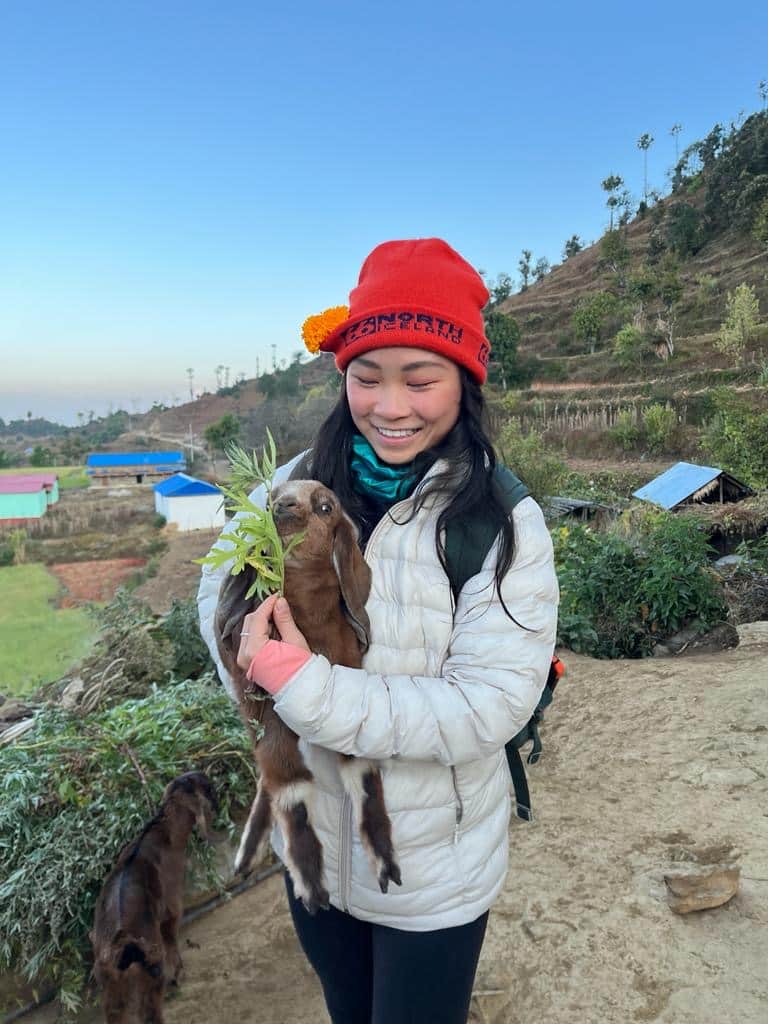
The Capstone Project
My capstone project was a solar-powered water distillation system with a team of four. Before I even entered the country, I was told that I should bring water purification tablets or UV purification stirring rods to Nepal. I was repeatedly warned to not drink the sink water and to be careful even brushing my teeth with it. It is well known that the water in this country is not safe to drink.
On the way to Kathmandu University, we walked by women sitting at a water fountain with big water buckets retrieving water. However, the locals told us that although this water is cleaner than from their home faucets, it is still not safe to drink and is mainly for utilities like washing dishes. We also drove along a river that was covered with trash, a disturbing scene that left our hearts heavy.
In the lectures during the program, we learned that people in the warmer regions of Nepal suffer from severe water-related health problems. So we decided to consider using one of the abundant energy sources, solar energy, to power water filtration systems. Because of the capacity limitations of solar power, we decided to design a small-scale water purification network that can supply clean water to an individual building.
We chose the case study to be a school because schools are viewed as a place that connects the community where it has an impact on many families in the village. This technology also provides educational opportunities for the students attending the school so that they can be inspired to conduct their own water filtration projects.
The challenges were to figure out how this simple technology can provide water in an efficient and timely manner, and who is going to pay for the project. With the help of team members with engineering backgrounds, we were able to improve the capacity of the system. Inspired by TGP and the nonprofit GivePower Foundation, we came up with a plan to raise funding and labor support. The project resonated with some of the Nepali onsite coordinators and they told us that they would provide the support they can if we were to move forward with this project in Nepal.
Learning Moments
My absolute favorite moment of learning was the tea-time interview with our hostess. She invited us to have sweet tea and roasted popcorn at her house. We got to tour a traditional Nepali home that is completely made by the family themselves. From the surface of the walls and the stovetop, you can see the dedication that was put into the construction of the home.
Translated by one of the onsite coordinators, Shanti, we were able to ask the hostess our questions. I learned that her kids are living outside of the country so she rarely gets to see them. Although she misses them very much, she is thankful that her children got the opportunities they deserve and can see the world and learn. I learned that she thinks her village is beautiful and loves every day of working in the field.
The love of a mother is so selfless and powerful. Her love for her children and her land makes her happy. Even though she does not have the comfort and the high technologies that I take for granted, she is more appreciative of her life. Inspired by her, I am more content with the life I was given after I came back to Texas. I even look at my flushable toilet and hand soap with loving eyes. I learned to be calm and thankful for the ups and downs in my everyday journey.
My biggest takeaway from the program was my new friends, a group of intelligent minds who also happen to care about the environment like I do. It is comforting to think that although the energy transition and sustainability efforts will be a long and difficult journey, there will always be a group of TGP alumni supporting my effort and working towards the same goal.
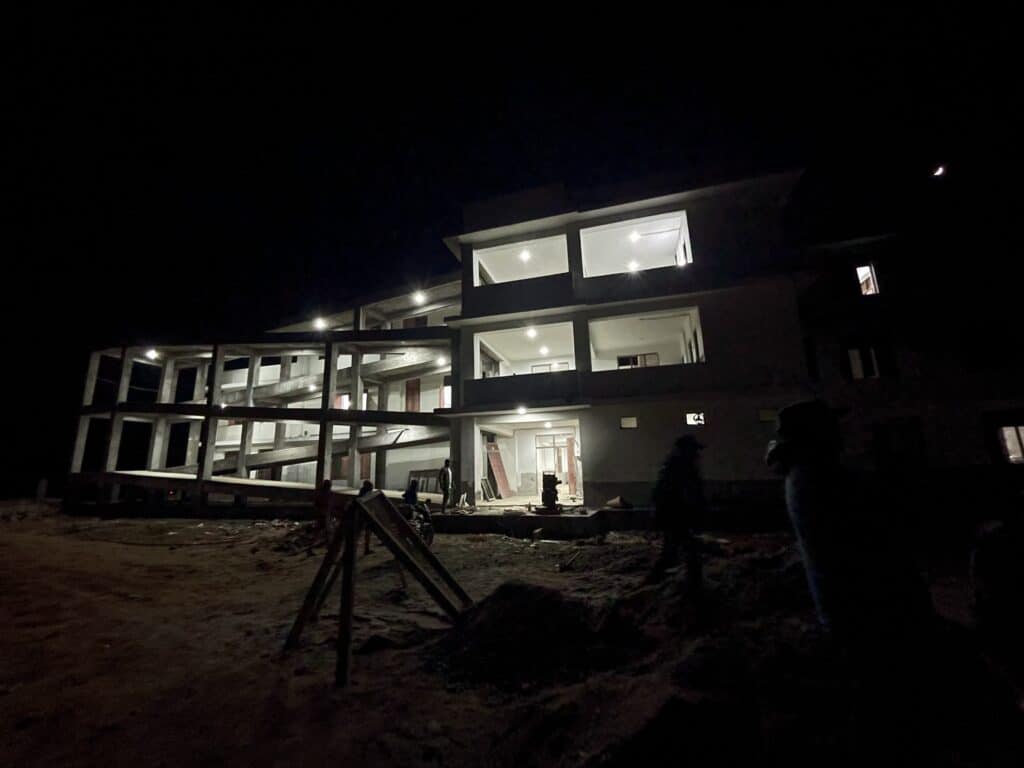
Another takeaway is that while the implementation of renewable technologies is important, ensuring the technologies are sustainable is necessary as well. After installing the solar panels for the new hospital in Sindhuli District, trained and experienced engineers are responsible for regularly checking in with these solar systems, replacing and repairing equipment as needed, and making sure that the technology can support the villagers in the long term. I learned that if these technologies are built but not sustained, they might cause more harm than good for the communities. This takeaway will always be considered for any of the future energy systems designs I work on in the future.
To the generous Shine On Scholarship donors, I hope you know that my trip to Nepal has changed my life forever. I know it might sound dramatic, but I have never been so humbled, inspired, and motivated. Thank you for providing me with the most amazing educational opportunity. I will take what I learned from this trip with me for the rest of my career and life journey. I will help more people in the way I am capable, just like you did for me. I hope you keep supporting The GREEN Program and enable more students to bring electricity to Nepal’s villages.
Sophia’s advice for new GREENies:
There is always a way to pay for it. “Money comes and goes, love comes and grows,” one of the participants from my Nepal program once told me. There are people out there who are inspired by their own study-abroad experiences and would love to help the younger generation experience the same. You just have to put in the effort to find them. And don’t forget to pass the love and support along to the next generation when you become successful.
